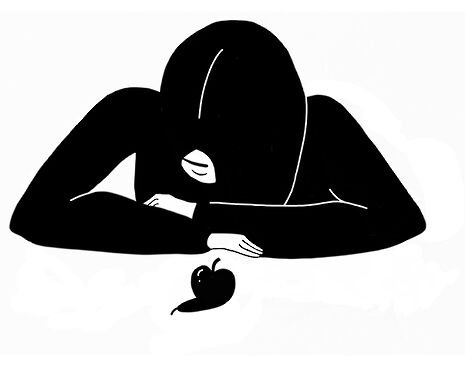Experiencing colourism as a mixed-race person
Columnist Priya Edwards discusses how and why colourism is confusing as a woman of colour who sometimes benefits from white privilege

When I first started Cambridge, people seemed to find my background unnecessarily fascinating. My freshers’ week seemed to be filled with making jokes about how my mum ‘escaped’ a marriage to another British Indian man for my dad as soon as people found out I was mixed race. Flash forward a month, to Downing’s Diwali formal – I was already shocked such a thing even happened – when a friend asked, “Wait, are you actually Indian? I thought you were white when I first met you”. I had never been confronted with someone who didn’t at least think I was ‘exotic’. I had no idea how to react. It seemed to be delivered as a compliment. My comparative paleness, next to other people of colour, seemed to be something worthy of praising. To someone who knew the problems that colourism causes for the self-esteem of women of colour, it stung. My ‘fair skin’ has often been praised; people would tell me I was beautiful and trips to the mandir would often result in my being told I could make it in Bollywood, “they like pale girls there”.
My comparative paleness, next to other people of colour, seemed to be something worthy of praising.
The idea that whiteness was the epitome of beauty had been instilled in me young. In a society where women’s value and beauty are so often conflated, it created an inferiority complex that has taken years to deconstruct. I am ashamed to admit now that when I was little, I wished I was white. In my imaginary games, I saw myself as white with rosy cheeks, jet black hair and bright blue eyes.
Western beauty standards have long damaged the self-perception and confidence of women of colour. Colourism actively disadvantages dark-skinned women of colour as it associates their skin with negative characteristics. In India, it has its roots in colonial oppression and the caste system. Whiteness was the ideal and those of higher castes tended to be fairer than those lower on the social strata, thus reinforcing classed ideas of impurity and undesirability. However, colourism is rife in the UK. Of the 68 female artists to top the British Top 40 since 2017, 17 are of black heritage and the vast majority of those are light skinned.
When my beauty is seen beautiful only because I appear white, it reminds me I will only ever be a poor copy. I can never be an English Rose or tanned California Girl, merely a poor imitation. At the same time, women who are far-removed from the ‘idyll’ of whiteness are exoticized, fetishized or straight up derided and ignored. Black women are often called ‘chocolate’ which under the guise of a compliment, reinforces that women of colour are different, exotic, to be desired only for our deviation from the norm of whiteness.
When my beauty is seen beautiful only because I appear white, it reminds me I will only ever be a poor copy.
Last week, it was announced that a team of students and academics are launching an ‘End Everyday Racism’ project in Cambridge. This is encouraging, because as we have seen in recent weeks, existing as a BME student in Cambridge can be incredibly political. Whether you are Oliver Moodie being racially abused in a club or Dr Priyamvada Gopal receiving questionable looks from porters late at night around college, skin colour is hard to ignore. While in no way is the awful experience of Moodie comparable to the everyday slights I am talking about, it is a reminder that as a university and as a society we have so much further to go. Both overt and insidious abuse contribute to the alienation of students – and staff – of colour. Ending racism requires us all to deconstruct our notions of whiteness and ‘the Other’; we must deconstruct what it is we perceive as desirable, in any context from academia to the club to the workplace.
It suddenly felt that, in being mistaken for being white, I was unable to claim a part of my own life experience. I am a woman of colour; although I benefit from light-skinned privilege, it does not detract from the fact that I have had my fair share of racist encounters. One only has to be told that you are fulfilling a quota once for the insecurity and imposter syndrome to flourish.
I began to question how often I had benefitted from ‘accidental’ white privilege. It is uncomfortable to supposed that people perhaps saw you a certain way because they had assumed your whiteness. I suppose, if you were unaware that Priya is one of the most common names in India, you could perhaps assume that I am the child of two parents inspired by a unique sounding name.
It suddenly felt that, in being mistaken for being white, I was unable to claim a part of my own life experience... I was BME but not quite enough.
I have really struggled with such a perception. On the one hand, it has benefitted me to appear white-passing, yet it has filled me with a sense of insecurity about whether I can even claim the right to fight the oppression I am so determined to fight. I am currently college BME Officer and hope to work in promoting racial equality after university. The idea that somehow, I benefit from the same structures of oppression that disadvantage family and friends at the same time was, and still is, a reality I find disheartening and struggle to navigate.
I suddenly became uncomfortable; I wasn’t ‘properly Indian’ and yet was regularly made uncomfortable in the overwhelmingly white environment of Cambridge. I was BME but not quite enough. I was white but never enough to feel truly acceptable.
In recent years, I have tried to dismantle inbuilt beliefs I had, and still have, about beauty and what it means to be a woman of colour, particularly when people often do not believe you to be so. Until we all consciously and subconsciously break down the notion that whiteness is better, the inferiority complex within so many women of colour will remain. Attempting to exist as a mixed-race woman has been complicated somewhat by this. I have to be aware of my privilege, and yet, at Cambridge, I often mix in very white circles. Trying to carve out a healthy balance when I’m ‘exotic’ but the same person wouldn’t ‘date a black girl’ is difficult.
In my own life, I have tried to negotiate a peculiar balance that I did not anticipate having. My accidental privilege by virtue of my light-skin has probably benefitted me far more than I have ever realised. Since it was highlighted, I have become more aware of it. Acknowledging I benefit form a privilege which I always thought I was disadvantaged by – by being a woman of colour – I have tried to find a way to assert my identity as a mixed-race woman without erasing those who are more disadvantaged than I. I cannot say I have found that balance, yet, but I am sure as the conversations continue, I will.
 News / Colleges charge different rents for the same Castle Street accommodation2 March 2026
News / Colleges charge different rents for the same Castle Street accommodation2 March 2026 News / News in Brief: waterworks, wine woes, and workplace wins 1 March 2026
News / News in Brief: waterworks, wine woes, and workplace wins 1 March 2026 News / Climate activists protest for ‘ethical careers policy’1 March 2026
News / Climate activists protest for ‘ethical careers policy’1 March 2026 News / Angela Merkel among Cambridge honorary degree nominees27 February 2026
News / Angela Merkel among Cambridge honorary degree nominees27 February 2026 News / Private school teacher who lied about Cambridge degree barred from teaching27 February 2026
News / Private school teacher who lied about Cambridge degree barred from teaching27 February 2026









